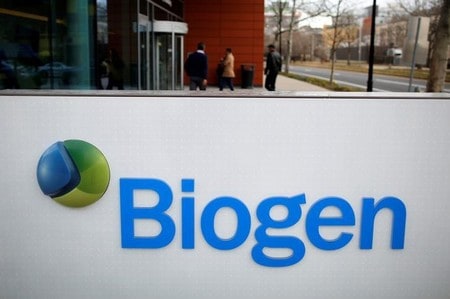(Reuters) – Japanese drugmaker Eisai Co and Biogen Inc said that the final analysis of a mid-stage trial of their Alzheimer’s drug showed positive results for patients who received the highest dose.
The news sent Eisai’s shares up as much as 14.6 percent in Friday morning trading in Tokyo while Biogen’s shares were up 7 percent at $320 in after-hours trading.
The companies said in a July 5 statement the highest dose of the drug, BAN2401, showed a statistically significant slowing of disease progression at the end of 18 months as compared to a placebo. The trial, which involved 856 patients with early Alzheimer’s disease, involved five dose regimens.
Biogen, based in Cambridge, Massachusetts, last December reported that the drug had failed to meet the main goal in the mid-stage trial, but said the 18-month trial would continue for further analysis.
Biogen and Eisai said in their statement on Thursday that detailed results of the final analysis of the mid-stage trial will be released at future conferences.
BAN2401 is one of a number of drugs targeting beta amyloid, a protein that forms toxic brain plaques that are theoretically an underlying cause of the memory-robbing disease.
There is still no treatment that can slow the progression of Alzheimer’s, the commonest form of dementia. Current drugs can do no more than ease some of the symptoms.
The two drugmakers are also developing another Alzheimer’s drug, aducanumab.
(Reporting by Anirban Paul in Bengaluru and Sam Nussey in Tokyo; Editing by Leslie Adler and Muralikumar Anantharaman)



